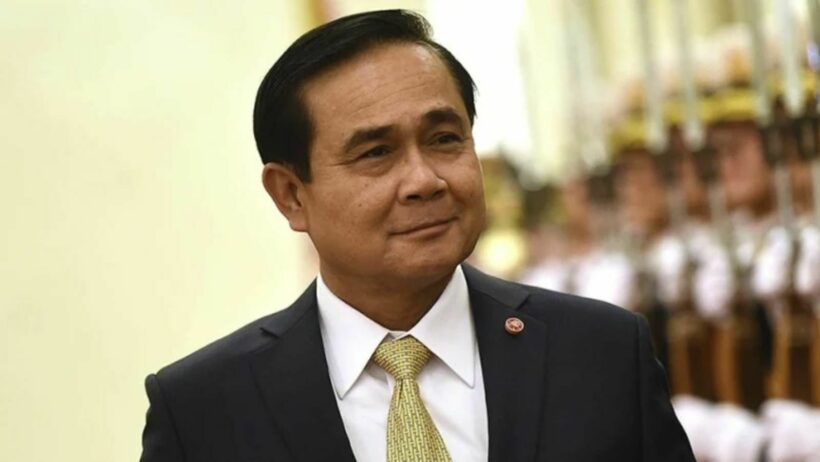Thai PM Prayut not worried about (un)popularity poll

Thailand’s prime minister ain’t that popular, but he doesn’t seem to mind because “the government is doing a good job”. That’s the gist of his response to a popularity poll indicating his favour among the Thai public is fading. After chairing Tuesday’s cabinet meeting, Prime Minister Prayut Chan-o-cha said…
“Even though the government has not yet achieved everything it set out to do, it has done a lot for the country. So the government should be given fair treatment.”
Prayut’s popularity has dropped significantly since last December, when he receive nearly 17% of the popularity pie. In the latest assessment, Prayut was outpolled 13.4% to 12.7% by 41 year old Pita Limjaroenrat, the youthful leader of the Move Forward Party (a political makeover from the defunct Future Forward Party, disbanded by the Constitutional Court in 2020).
Meanwhile, the largest percentage of Thais, 27.6%, said they were “yet to see anybody suitable for the post of Thai PM.”
This means that Pita is now the country’s most preferred candidate, followed by Prayut, then Paethongtan Shinawatra of the Pheu Thai Party (Thaksin Shinawatra’s youngest daughter), and then Khunying Sudarat, leader of the Thai Srang Thai Party (formerly leader of Pheu Thai).
The next candidates on the list represent a wide variety of political parties. 3.6% of respondents said they had no answers, or were not interested.
The poll was conducted over five days from March 10-15. Respondents were 2000 Thais from across the country 18 years old and above, with diverse jobs and levels of education.
Thailand’s ruling military-backed government forced the progressive Future Forward Party to dissolve in 2020. Former members of the party then formed the Move Forward Party. Thailand has seen unrest since the current government came to power in a coup in 2014. In the summer of 2020, a wave of protests movements began among Thailand’s university students, and eventually expanded into many parts of Thai society.
Thailand’s junta government, as well as institutions like universities, continue to silence dissent by accusing activists of violating censorship laws and “disrespecting Thai culture“, among other things.
Latest Thailand News
Follow The Thaiger on Google News:



























